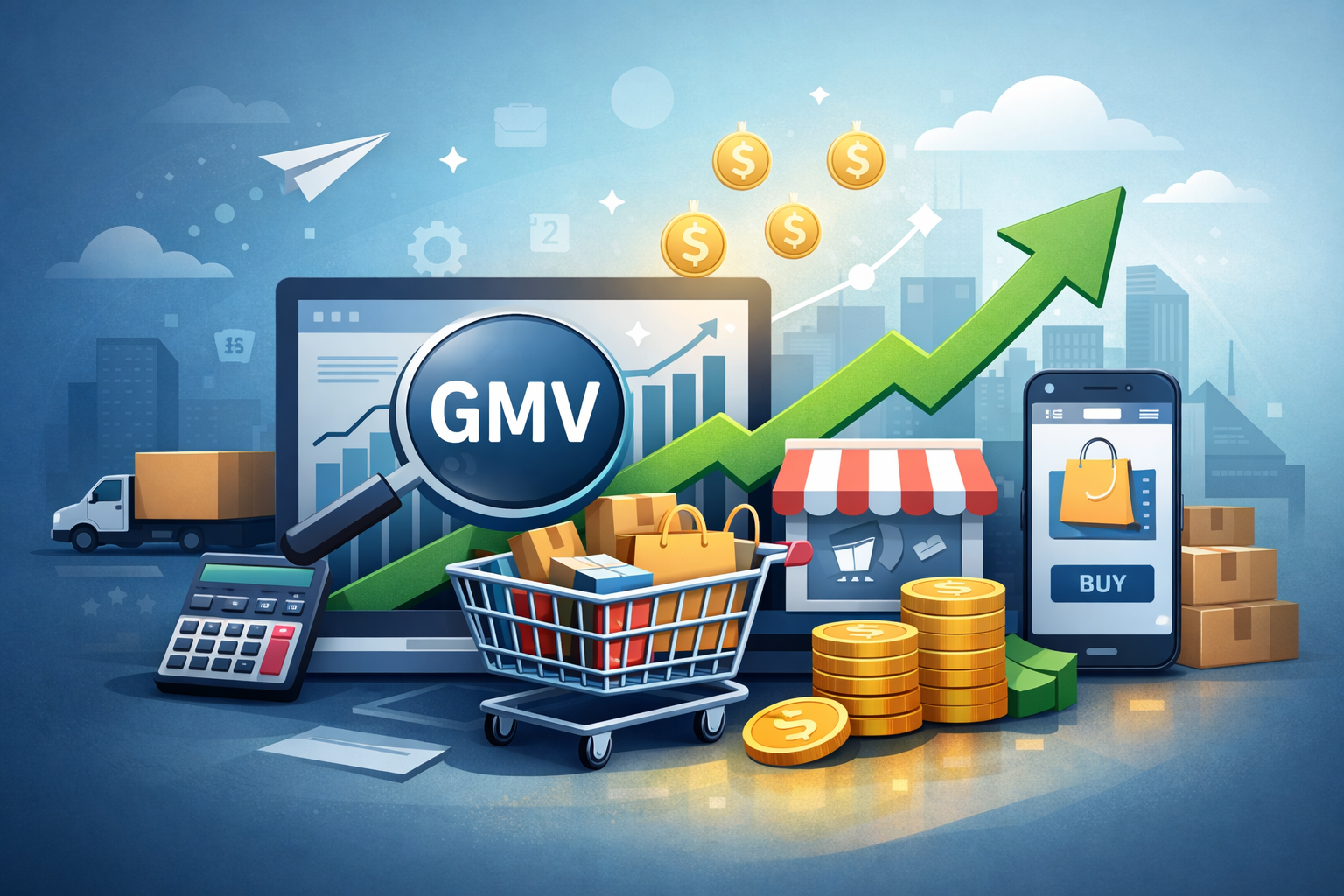Try Zipchat in Action!
Enter your store URL to see how Zipchat would behave.

In today's digital landscape, chatbots and AI agents have become increasingly prevalent. They are revolutionizing the way businesses interact with customers and provide support. While these terms are often used interchangeably, there are distinct differences between chatbots and AI agents. In this comprehensive comparison, we will explore the basics, technological differences, key features, roles in business, and the future of these AI-powered tools.
Understanding the Basics: Chatbots and AI Agents
Defining Chatbots: Purpose and Functionality
Chatbots are computer programs designed to simulate conversations with humans through text or voice interactions. They are typically programmed to understand and respond to specific commands or questions. Chatbots can be rule-based or powered by artificial intelligence algorithms. Rule-based chatbots follow pre-defined rules and provide scripted responses, while AI-powered chatbots utilize natural language processing (NLP) and machine learning to improve their understanding and generate more authentic responses.
Rule-based chatbots are often used in scenarios where the interactions are predictable and structured, such as answering frequently asked questions on a website or providing basic customer support. These chatbots are effective for handling simple queries and guiding users through predefined processes. On the other hand, AI-powered chatbots are capable of handling more complex conversations and adapting to user inputs in a more dynamic manner.
AI Agents Explained: More Than Just a Chatbot
AI agents, on the other hand, go beyond the basic functionality of chatbots. An AI agent is a broader term that encompasses chatbots with advanced capabilities. AI agents possess the ability to not only understand and respond to user inputs but also learn from past interactions and enhance their performance over time. They leverage complex algorithms to process large amounts of data, allowing them to provide more personalized and context-specific responses.
AI agents are increasingly being used in various industries, including customer service, healthcare, and finance, to provide intelligent and efficient solutions. These agents can analyze user preferences, behavior patterns, and historical data to offer tailored recommendations and support. By continuously learning and evolving, AI agents can deliver a more human-like interaction experience, leading to higher customer satisfaction and engagement levels.
The Technological Differences Between Chatbots and AI Agents
How Chatbots Work: An Overview
Chatbots operate based on programmed rules or algorithms. They analyze user inputs, match them against pre-defined patterns, and generate appropriate responses. Rule-based chatbots are suitable for handling simple queries and delivering predefined information, such as providing weather updates or answering frequently asked questions. However, they may struggle with understanding nuanced or ambiguous queries.
On the other hand, AI-powered chatbots utilize Natural Language Processing (NLP) and machine learning techniques to understand and respond to natural language inputs. They are trained on large datasets, allowing them to grasp the intent behind user queries and provide more contextually relevant answers. AI-powered chatbots can continuously learn and improve their performance over time based on user interactions.
Let's dive deeper into the workings of AI-powered chatbots. These chatbots employ sophisticated algorithms that enable them to process and interpret vast amounts of unstructured data, including text, images, and voice recordings. By analyzing patterns and extracting meaningful insights, AI-powered chatbots can deliver highly accurate and contextually rich responses.
One of the key advantages of AI-powered chatbots is their ability to adapt and improve their performance automatically. Through the use of machine learning models, these chatbots can recognize user patterns, preferences, and sentiments. This allows them to tailor their responses and recommendations according to individual needs, creating a personalized and engaging user experience.
The Complex Mechanisms of AI Agents
AI agents, which go beyond chatbots, employ even more advanced algorithms and techniques such as deep learning and neural networks. These mechanisms enable AI agents to process and interpret vast amounts of unstructured data with remarkable accuracy and efficiency.
By leveraging deep learning, AI agents can analyze complex patterns and relationships within the data, allowing them to generate insights and make informed decisions. This capability makes them invaluable in various industries, from healthcare to finance, where the ability to extract meaningful information from large datasets is crucial.
Furthermore, AI agents have the ability to continuously learn and improve their performance. Through the use of neural networks, they can adapt their behavior based on feedback and new information. This means that AI agents can stay up-to-date with the latest developments and trends, ensuring that they provide the most relevant and accurate responses to user queries.
In conclusion, while chatbots and AI agents share some similarities in their use of algorithms and techniques, AI agents take the technological capabilities to a whole new level. With their ability to process and interpret vast amounts of unstructured data, adapt to individual needs, and continuously learn and improve, AI agents are revolutionizing the way we interact with technology.
Key Features: Chatbots vs AI Agents
The Unique Features of Chatbots
Chatbots offer several distinctive features that make them valuable tools for businesses:

- 24/7 Availability: Chatbots can provide round-the-clock assistance, ensuring customers are supported at any time.
- Efficiency: Chatbots can handle multiple customer queries simultaneously, reducing wait times and improving operational efficiency.
- Consistency: Chatbots provide consistent responses, eliminating the risk of human error or variability in information delivery.
- Cost-Effectiveness: Chatbots can significantly reduce support costs by automating repetitive tasks and handling common inquiries.
One of the key advantages of chatbots is their ability to engage with customers instantly, providing quick responses to inquiries and issues. This immediate interaction can lead to higher customer satisfaction and retention rates. Additionally, chatbots can be programmed to gather valuable data from customer interactions, helping businesses gain insights into customer preferences and behavior.
What Sets AI Agents Apart
AI agents encompass all the features of chatbots and offer additional capabilities:
- Personalization: AI agents can analyze user data and provide personalized recommendations and guidance tailored to individual preferences.
- Contextual Understanding: AI agents can comprehend the context behind user queries and deliver responses that go beyond simple keyword matching.
- Emotional Intelligence: AI agents can recognize and respond to human emotions, enhancing the user experience and building stronger connections.
- Continuous Learning: AI agents can improve their performance over time by continuously learning from user interactions and incorporating new knowledge.
AI agents are designed to mimic human-like interactions, offering a more natural and engaging experience for users. By understanding user intent and context, AI agents can provide more relevant and helpful responses, leading to increased customer satisfaction and loyalty. Furthermore, the emotional intelligence of AI agents allows them to adapt their tone and responses based on the user's emotional state, creating a more personalized and empathetic interaction.
Why Zipchat AI Agent is Superior
Zipchat AI Agent surpasses traditional chatbots by offering advanced features such as personalized recommendations, contextual understanding, and continuous learning. Unlike standard chatbots that follow scripted responses, Zipchat AI Agent can understand and respond to user emotions, providing a more human-like and engaging interaction. This results in higher customer satisfaction and loyalty. Additionally, Zipchat AI Agent offers detailed analytics, helping businesses gain insights from chat interactions and improve their strategies. Experience the future of customer engagement with Zipchat AI Agent by starting your 7-Day Free Trial today.
The Role of Chatbots and AI Agents in Business
How Businesses Utilize Chatbots
Chatbots have become indispensable tools for businesses across various industries. They have revolutionized the way companies interact with their customers and streamline their operations. Let's take a closer look at how businesses utilize chatbots:
- Customer Support: In today's fast-paced world, customers expect instant responses to their inquiries. Chatbots are capable of handling customer inquiries, providing product information, and assisting with troubleshooting. With their ability to understand natural language and provide quick and accurate responses, chatbots ensure that customers receive the support they need, when they need it.
- E-commerce: Chatbots have transformed the way customers shop online. They can guide customers through the purchasing process, recommend products based on their preferences, and address any order-related concerns. By offering personalized recommendations and assistance, chatbots enhance the overall shopping experience and increase customer satisfaction.
- Lead Generation: Chatbots play a crucial role in capturing leads and qualifying prospects. They engage website visitors, gather relevant information, and provide valuable insights to businesses. By automating the lead generation process, chatbots save time and resources, allowing businesses to focus on nurturing and converting leads into customers.
- Employee Support: Chatbots are not only beneficial for customers but also for employees. They can assist employees by providing access to internal resources, answering HR-related queries, and facilitating onboarding processes. By offering instant support and guidance, chatbots empower employees to perform their tasks more efficiently and effectively.
The Impact of AI Agents on Business Operations
The integration of AI agents into business operations brings several advantages. These intelligent agents leverage advanced technologies to enhance various aspects of a business:
- Enhanced Customer Experience: AI agents have the ability to deliver personalized and proactive support to customers. By analyzing customer data and understanding their preferences, AI agents can offer tailored recommendations and solutions. This leads to improved customer satisfaction and loyalty, as customers feel valued and understood.
- Increased Efficiency: AI agents excel at automating repetitive tasks, freeing up human resources to focus on more complex and high-value activities. By taking over mundane and time-consuming tasks, AI agents optimize business processes, reduce errors, and increase overall efficiency. This allows employees to dedicate their time and expertise to tasks that require human intervention.
- Data Insights: AI agents are capable of collecting and analyzing vast amounts of customer data. By processing this data, businesses can uncover valuable insights that can be used for targeted marketing and product development. AI agents can identify patterns, preferences, and trends, enabling businesses to make data-driven decisions and stay ahead of the competition.
- Competitive Advantage: Leveraging AI agents can differentiate businesses by providing cutting-edge technology and superior customer service. By offering innovative solutions and personalized experiences, businesses can gain a competitive edge in the market. Customers are more likely to choose a company that embraces AI technology to deliver exceptional products and services.
As technology continues to advance, the role of chatbots and AI agents in business will only grow. These intelligent tools have proven to be invaluable assets, helping businesses improve customer satisfaction, streamline operations, and gain a competitive advantage. By embracing chatbots and AI agents, businesses can stay ahead in the ever-evolving digital landscape.
The Future of Chatbots and AI Agents
Predicted Developments in Chatbot Technology
As chatbot technology continues to advance, we can expect the following developments:

- Natural Language Understanding: Chatbots will become even more proficient at understanding and responding to human language, including slang and idioms.
- Voice Recognition: Voice-enabled chatbots will become increasingly prevalent, allowing users to interact through speech rather than text.
- Integration with Virtual Assistants: Chatbots will seamlessly integrate with virtual assistants like Siri and Alexa, providing a cohesive user experience across different platforms.
- Multi-Lingual Support: Chatbots will expand their language capabilities, enabling businesses to serve diverse customer bases effortlessly.
Imagine a world where chatbots not only understand the words we say but also the emotions behind them. This is a potential future development in chatbot technology that holds great promise. By incorporating emotional intelligence, chatbots will be able to detect and respond to the subtle nuances of human emotions. They will be able to empathize with users, providing a more personalized and human-like interaction.
Furthermore, chatbots will not be limited to just text-based interactions. Voice-enabled chatbots will become increasingly prevalent, allowing users to have natural and seamless conversations through speech. This will revolutionize the way we interact with technology, making it more accessible and convenient for everyone.
The Potential Evolution of AI Agents
The future of AI agents holds immense potential for transformative advancements:
- Emotional Intelligence Enhancement: AI agents will develop a deeper understanding of human emotions and improve their ability to empathize and engage with users.
- Real-Time Decision Making: AI agents will gain the capacity to make complex decisions in real-time, enabling businesses to automate critical processes.
- Human-like Conversations: AI agents will continue to refine their conversational skills, creating more natural and seamless interactions with users.
- Domain Expertise: AI agents will specialize in specific industries, acquiring in-depth knowledge to provide highly specialized insights and recommendations.
Imagine having an AI agent that not only understands your needs but also anticipates them. With real-time decision-making capabilities, AI agents will be able to analyze vast amounts of data and make informed decisions on the spot. This will empower businesses to automate critical processes and streamline their operations, leading to increased efficiency and productivity.
In addition, AI agents will continue to refine their conversational skills, making interactions with users feel more human-like. They will be able to understand context, engage in natural conversations, and provide personalized recommendations based on individual preferences and needs.
Furthermore, AI agents will specialize in specific industries, acquiring domain expertise to provide highly specialized insights and recommendations. Whether it's healthcare, finance, or retail, AI agents will become trusted advisors, offering valuable and tailored guidance to businesses and individuals alike.
Conclusion
In conclusion, chatbots and AI agents offer unique capabilities and serve different purposes in a business context. While chatbots provide efficient and consistent support, AI agents go a step further by offering personalization, contextual understanding, emotional intelligence, and continuous learning. The deployment of these AI-powered tools can significantly enhance customer experiences, optimize business operations, and unlock valuable data-driven insights. As technology continues to evolve, we can expect chatbots and AI agents to play an increasingly vital role in shaping the future of customer interactions and business success.

Experience the Future of Ecommerce with Zipchat AI
Ready to transform your online store's customer engagement and sales? Discover the power of Zipchat AI, the most advanced AI Chatbot for Ecommerce, and see how our proactive engagement can boost your conversion rates. Merchants using Zipchat AI experience an impressive average Chat-to-Sale conversion rate of 13.4%. Don't miss out on optimizing your customer interactions and business operations. Start your 7-Day Free Trial today and join the forefront of Ecommerce innovation.








